Ladies!
In this episode, I dive into the nitty-gritty of affiliate marketing versus e-course creation, so that you can spend more time making moves!
Affiliate marketing can be a great way to draw connections to topics, courses, and products that are associated with your passion projects without a major investment. At the heart of it, affiliate marketing allows us to work together; you bring the market and they bring the course you want to promote!
There are pros and cons to affiliate marketing, but it is a great way to work together and to offer a variety of courses and products without having to invest the time and resources to create them yourself.
On the other hand, if you’re crazy passionate and want to share your wonderful wisdom with the world, then affiliate marketing may not be for you! Instead, use your passion to energize you and motivate you to build a course that others can benefit from. Just like affiliate marketing, course creation has pros and cons to it, but this episode will help you decide on a clear path of action.
I pray this blesses you!
FULL EPISODE TRANSCRIPTION:
(00:00)
Hey, Lola, what’s up. It is the last day of the month. Holy smokes. This year is flying by. I hope you guys are all doing amazing. And I’m just sending you lots of love as we dig into today’s episode, really pumped to talk to you guys about this hot topic question that I just got from a client of mine and a friend of mine, and we dissected this together. That made me think, Oh my gosh, how many of you are sitting there wondering the same question.
(00:31)
Stef, should I affiliate for someone else’s product? Or should I create my own course? That’s a great question. And in today’s episode, we are going to go through what is an affiliate course, how that would look like, how that would look for you, the pros and cons, who this could be for like who it makes sense for to actually affiliate versus your own product.
(01:53)
Now, before we dissect affiliating versus creating your own course, Courtney St. Croix says “With Stef’s Pinterest masterclass, I was able to completely revamp my Pinterest strategy, immediately saw a return on investment literally the next day, after implementing the strategies inside Stefanie’s course. Stef’s tangible steps and thorough walkthroughs of both Pinterest and Tailwind have completely impacted the way my workflows are around Pinterest.
(02:21)
As a newbie, I felt overwhelmed by the process and that stopped me from making any impact on the platform. Stef’s course is exactly what I needed to take Pinterest to the next level. My audience grew by 80% guys.” Her audience grew by 80%, two days after she implemented the Pinterest masterclass. Back to her testimony. “And my impressions grew by 50%. I would highly recommend this masterclass. If you’ve been struggling to understand how Pinterest can work for you and your business.”
(02:49)
She then sent me a screenshot about a week later after this review guys, and she had grown by over 500% insane. So if you are looking for simple, complete Pinterest strategy, how to set things up, how to optimize your Pinterest and spend less than 45 minutes a week in Pinterest go to pinterestmasterclass.gr8.com.
(03:16)
Testimony after testimony, just like that from my community. After just a couple of weeks of them implementing these strategies, 180 your Pinterest. Let’s do it, pinterestmasterclass.gr8.com. I’ll meet you there. All right, girl, let’s talk about affiliate versus your own stuff. Okay. First of all, what does it mean to be an affiliate for someone else’s course? Let me lay this out. Let’s say that somebody else owns a course on meal prepping for moms and you’re thinking about, Oh my gosh, I just wish I could create a meal prepping for mom’s course, but I’m not a meal prepping expert. I’m a fitness expert.
(03:59)
So you go and you research and you find the perfect course. Somebody else has created it. You can potentially approach that person and say, Hey, can I be an affiliate for your existing meal prepping course. And you pay me a commission for every course that I sell. Okay. So someone else is paying you a commission to market their course. Now, why would they do this? Well, because you have a market that they cannot touch.
(04:26)
You have a different group of people that you sell to. So if they didn’t pay you a commission, they would never sell probably any to the people in your community, right? So it’s really a win win, because you don’t have to create a course. It already exists by somebody you like, know, and trust. And you’re able to make a commission off of that. Now, typical commission on an affiliate product, usually it’s between 30 and 50%.
(04:56)
I’ve seen low commissions at around 20%. If a course is like crazy big or super niche, I don’t know. But really that sweet spot is 30% to 40%. I’ve also seen 50% and even 60% commissions based on your market, right? So if you have a market of 2 million people and you’re going to affiliate for someone that’s very small, like they only have a thousand people in their group community, but you know, their courses legit, you can pitch and be like, look, let me affiliate for you at 50% or 60% commission, because I have a huge, huge following. And I’m going to blow it out of the park for you and make you a ton of money.
(05:38)
So it’s totally negotiable is what I wanted to say to all of you. And you can make it worth your while. So it’s really such a great setup. Now let’s go through the pros and cons of this scenario. You being an affiliate, let’s say that you are a fitness guru and you teach moms fitness and health, and you want to affiliate for this meal prepping for moms course that already exists by somebody else.
(06:04)
Here are the pros of that. Number one, you don’t have to create anything, right? Somebody else has already done the content they’ve created the modules. They’ve mapped out the program. It exists. So this is saving you time, energy, the money of hosting the course. Also, you don’t have to be the expert here because someone else is already this meal prepping expert. You don’t have to go and figure out how to become a meal prepping expert to create this course. That’s in demand. Use someone else’s brain for that, right?
(06:41)
Here’s another pro. You can market this course. Oh my gosh. Hey fitness mama’s, I found the perfect macro course for you. It’s for busy moms. It’s perfect. Go buy it here. And then you hand off the people. So you are not in charge of cultivating the relationships, answering questions, dealing with refund requests. It’s just a lot less work. You’re basically outsourcing the expertise to someone else.
(07:10)
Now, the cons of this scenario, the cons of you being an affiliate for this macro course for moms, you don’t own it. You don’t own it. That’s literally the biggest con of being an affiliate. If that person that creates that course decides they don’t like it anymore. And they want to take it down. You really don’t have a say in that. Now if you’re selling the poop out of their course, they’re probably not gonna do that. However, you don’t know that, right?
(07:39)
If they want to change something, they want to go in and change the model or open up their course and make it more masculine and they decide they want to open it up to a different demographic. And they change the branding. Again, you don’t own that. So you don’t have this typically as much say in a product when you’re an affiliate. Now, if you’re a huge affiliate for someone and you are selling a whole lot of their product, they’re probably going to have an open mind when you say, Oh, Hey, can we create a different sales page? Or, Hey, I have an idea.
(08:08)
People aren’t going to turn away their biggest sales people most often, but that is something to consider. Now another con is that you don’t make as much commission or profit as if it was your own product, right? So let’s say that you negotiate with this person and you make 40% of every macro course that you sell for that person. Great. Well, if it was your macro course, you would be making probably 90% commission. Let’s not forget you have to invest time, energy, updates, running it, so there’s pros and cons to all of that.
(08:47)
So who should affiliate, who is being an affiliate right for? I believe that when you’re new and starting out, and you’re not sure what your expertise or your zone of genius is, and you don’t see a clear, defined problem yet where you are the expert. It’s a great idea to start with affiliate products, especially if you aren’t “qualified” or you’re unsure of which product would be the best for you to create.
(09:17)
Example, if this fitness person starts out newish in the industry and you have a fitness podcast, but you don’t have anything created yet. Well, instead of investing a thousand dollars into all the platforms and spending hours on course creation, without truly knowing your audience, go sign up as an affiliate for a fitness program that already exists and a nutrition program that already exists and market those on your show for awhile, until you get to know your avatar at a deep level, and then you can figure out what your thing is going to be.
(09:52)
So I think it’s a beautiful way to make some income upfront without having to spend a ton of time and money. Who is it not for? I believe that being an affiliate is not for you if you have a solid base of people that are asking you for something specifically that you are an expert in. Example, all of you were asking me for podcasting help.
(10:17)
I was getting hired by people that wanted to spend hours with me on starting a podcast with them, mapping out the brand creation, how to edit, how to do it. How do we scale? How do we launch how all these things. Now I could have chosen ladies to just be an affiliate. There’s a bajillion podcast courses out there. I could’ve said, who’s my favorite. I’ll go affiliate for this person. But because I could be an expert in this space because I had done it and I had helped other people have the same result, and I wanted to do it in a way that created a lot of trust for you, for my Lola’s.
(10:51)
It would have actually been a disservice for me to just be an affiliate for someone else’s podcasting course, because you guys were asking me for a podcasting course. So if you have found yourself in that position and you see a clear defined demand and you are answering the same question with the same framework or the same system, it’s time for you to step up and create your own course.
(11:16)
So let’s transition into this. What is your own course? It is a set of recorded video modules. Most often it could be audio if you’re like, I’m not doing video. But what I do is I record video modules using like a PowerPoint template and my voice. I record them and they answer a problem.
(11:38)
They go from introducing to getting into the problem, to all the steps all the way through to the conclusion. So example my podcast course Podcast Pro University goes from how to set up your podcast to where to host your podcast, what equipment you need, how to record, how to edit, how to get guests on, how to manage the show, how to promote it, how to launch, how to monetize it, advanced growth strategies, etc.
(12:06)
So you then create this product that solves a problem that is already in demand. Now that’s what it is. It’s also something that you own. You get to price it yourself. Now, here are the pros of your own product. You own it. What a beautiful thing. I own my course, right? I am able to say if I want to change something, I just log in and change it.
(12:31)
Nobody else has to run it by me. I don’t have to run it by someone else. I also make basically 90% of the profit margin. Let’s say 10%, 5% goes to where I host my courses, which is on Teachable. And you guys, every single resource that I personally actively use is at stefaniegass.com/resources. If you guys want to use all the systems and programs I use, you can head over there to see all of my programs and all of my affiliate relationships, because I’ve tried many different things.
(13:13)
I love the system I’m on right now today. So you own it. Here’s the second pro you are seen as the expert in that space. When somebody is a Christian mompreneur, and she’s ready to start a podcast, she thinks of me. I am able to be seen as, Oh, you’re in this micro niche of life coaching or female entrepreneurship or Christian, whatever blogging, podcasting, Stefanie Gass, take her course, take her course. Right? So it kind of sets you up as an expert in a space.
(13:51)
Here’s another great pro you can create an affiliate program. So now instead of you affiliating for someone else’s macro course, you own the macro course. You get affiliates to work for you. And now you’re making not only 90% of every one of your own sales, but other people are out there hustling your product for you. And you’re getting whatever 60% of those sales. Incredible, right?
(14:18)
Now, that is not to skew you into creating your own product because it’s a lot of work and it is not for everyone when they’re starting out. So here are the cons of creating your own course. First of all, you have to have the time and the clarity to create it. If you aren’t sure what your niche is, and you don’t have fierce clarity over what you’re doing and why and who you’re serving and what her number one problem is, don’t create a course yet.
(14:52)
If you are not hearing from the community yet, you’re probably not sure of what the solution is. We can think that we know what solutions are guys, but we just don’t know. I think I’ve created seven courses in the past three years. Right now today only two of them are published because I kept creating things that I thought my Lola needed, but I wasn’t big enough yet to know for sure.
(15:17)
Now I don’t regret it because it was a learning experience. I was able to fine tune my process. I still made sales, which is great, but holy smokes did I spend a ton of time and resources creating courses that ended up in the abyss. So it does take a lot of time. Another con you have to manage and update it. So my first two courses, you guys were the Facebook and Branding Bootcamp, and some of you probably took it and the Instagram Success Formula.
(15:48)
Well, I really didn’t think through that process and recognize that I wasn’t passionate about Facebook and Instagram marketing per se, but I thought that’s what people wanted. You have to be passionate about your course, because guess what? You’re going to have to update it and update it often. So I would have had to go into that thing. And can you imagine the level of work and research it would have taken for me to keep updating the Instagram Success Formula course? Instagram changes every five seconds so much so that I retired the course.
(16:25)
I literally can’t update this. I’m not passionate about Instagram marketing. This is not for me. So you do have to update it. Now on the contrary with my podcasting course, I am so excited to get in there and update something. I love adding updates to that course for you guys, because I’m so passionate about podcasting being an organic funnel for all of you.
(16:49)
I know that when we serve with our heart, with our voice behind a mic, we’re going to touch people and help them and encourage them and transform them. And all of that ends up leading to growth. So I’m just passionate about it. So you have to be in that head space. Now the next con is you do have to pay for hosting and marketing and look, that’s not cheap.
(17:10)
Whether you go with Teachable like I use, or you invest in, there’s lots of them, Kajabi, Thinkific, even your own website, you can create courses, but none of them are without investment. So you do have to pay for that. So who should create their own course? You’ve heard all the pros and cons of your own product.
(17:29)
You should create your course, if you’re hearing from your market and you are sure that you have a solution to a very clear and demanded solution. If you are that fitness guru and your market is coming to you, begging you for a 10 minute or less 30 minute workout program that they can do around their kids with a printable accountability plan and a group where you meet once a month and you’re hearing it from your community and you know it’s in demand.
(18:01)
It would be a disservice for you not to do your own product, your own course. Okay. And that would be because they want you, they’re asking you for that solution. Does that make sense? Now It wouldn’t be for you. If your community kept coming to you and asking you, Hey, I need a macro plan. I need a macro plan. I need a macro plan, but your passion was fitness. Your passion was that workout course. Go affiliate for someone else’s macro course.
(18:27)
You don’t want to create something that doesn’t light you up. Let someone else do that if it lights them up and then you can make that commission. Okay. Now a little bit deeper on courses. You can do your own online product in so many different ways. You can do it as a self study, you can set it up as a self study with support, kind of like my course looks, I’ve got a full, self-study podcast pro, learn to podcast, become a podcast professional course. But you get the group with it.
(19:01)
The membership community, which is free for now, I totally have intention of charging for that one day, but for now it’s free. I show up at least once, sometimes twice a month, answer questions. The community is incredible – hundreds of women leaving reviews, lifting each other up. So it does have that accountability. You can also launch courses that are more group centered. They go and they take a course, a module, and then you guys meet for an hour and everybody goes through it together. And they have this group coaching component.
(19:31)
So many ways to map that out, which is actually what we’re going to do in the next episode. We are going to go through how to create your own course. I’m actually going to create your first course with you if you’ve decided you’re at this point. If you’ve decided, Oh, my own product is where I’m at. It makes more sense than being an affiliate, which will not be all of you. Okay? So if affiliate is right for you I want you to research what course, what program fits in line with what you teach in market and hit them up.
(20:04)
Hey, do you have an affiliate program, love to market your product. And remember everything is negotiable. If you don’t love the terms, tell them that. Is there a different way we can structure this? Okay. And almost every product that is successful that has some traction has an affiliate program. Okay. I have an affiliate program, almost every course I’ve ever taken has an affiliate program. So please know that is an option.
(20:33)
Now, if you’re like, Oh gosh, I am at the point, I am ready, I see a product demand. I know there’s a framework to what these people are asking me for. I’m raising my hand. I’m ready to create a course. I want you to meet me back here in just a couple short days, and I’m going to lay out for you the exact process to creating your own course. We’re going to map out an online course together using my simple framework. Can’t wait for that.
(21:00)
I’ll see you guys back here soon. And let me ask you for a super quick favor. If you have learned something on my show, if you’ve laughed with me, if you’ve had a breakthrough, if you’ve ever sat there and gone, wow, that helped me. Or that really solved that problem for me. Would you please right now, take a screenshot. Please post it in your Instagram stories. Please.
(21:25)
The only way that we can touch more women and grow our sisterhood and continue to further this mission of God-centered, incredibly powerful business women and entrepreneurs, that all point back to Jesus and all point back to our creator. And we are walking together in this mission of doing our calling work here on Earth is by you guys sharing this podcast. And this is our show. This is not just mine. This is you guys giving me the content ideas. You all asking the questions, all of you that I’ve coached every student that’s part of my courses. Every one of you, that’s in the Facebook group. Each of you, that DM me with an idea, this is for you.
(22:06)
So let’s together further this mission, all right, let’s take the screenshot share it in your instagram stories. And if you haven’t left a review for the show, please do that for me. That is the number one way that you can thank me today for my time and the hours that go into this podcast completely free is to leave a review. It lights me up. It makes me smile. And it makes me feel so grateful that I get to do this work.
(22:33)
Praying over you, now, my incredible friends that you are filled with, perseverance, whatever you face today, wherever you are in this head space. In this moment in the craziness that we have been facing for the last 30 to 45 days, I pray over you that you know, you are exactly where you sit on purpose. That you revel in the journey that you find the miracles in the mess that you take a moment to just feel into the blessings of where you sit, but that you recognize that the calling takes action.
(23:08)
I pray that God gives you the rejuvenation and the motivation that you need to just keep going, keep pushing, keep stepping out in faith, even though, even when it feels overwhelmed, even when it feels confusing. Because He will make good on His promises and He’ll qualify the call. And you, my beautiful, incredible friend. You have been called, raise your hand and be chosen. It’s your time. It’s our time. I love ya. I’ll see you back here soon. As always, love and light, Stef.
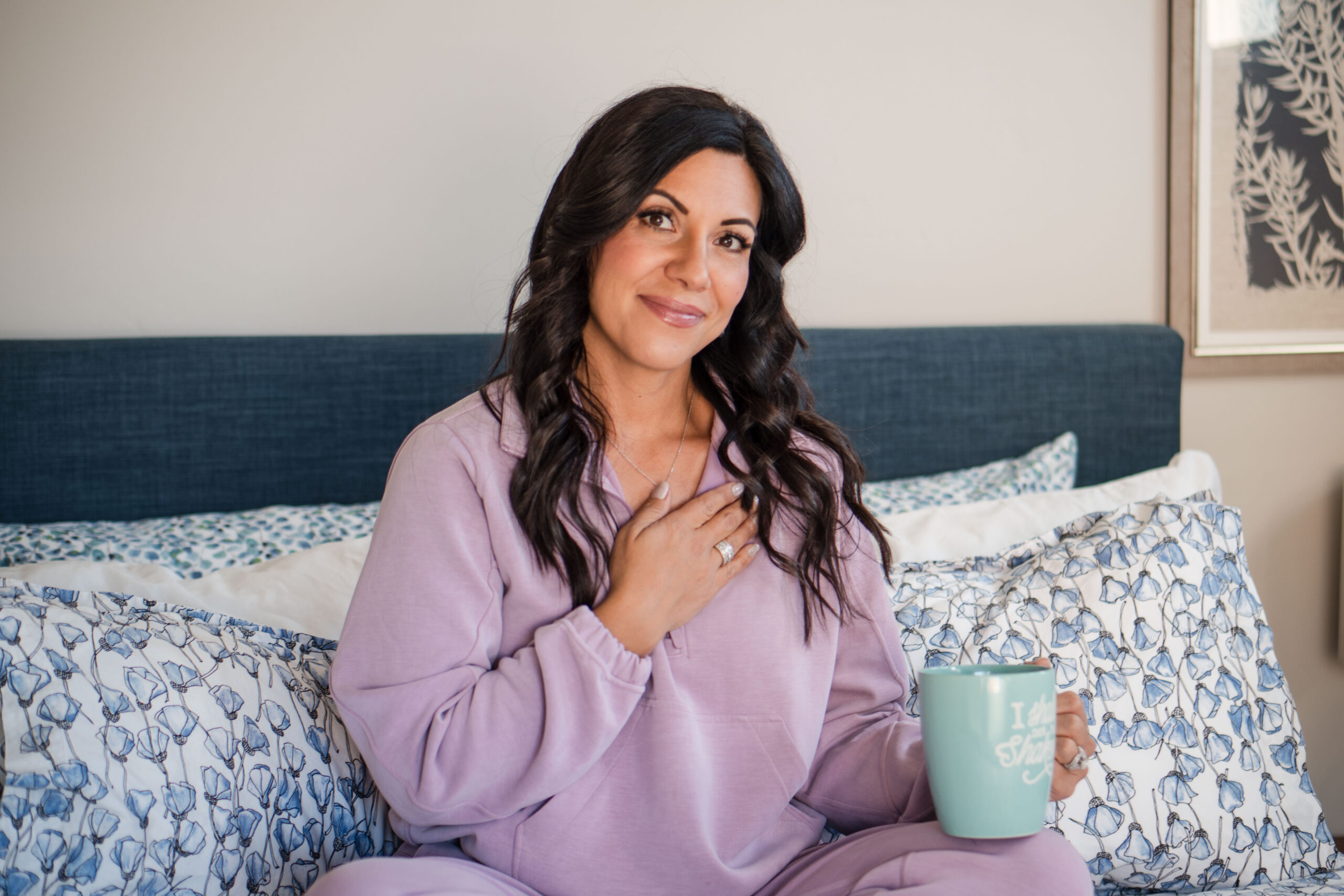



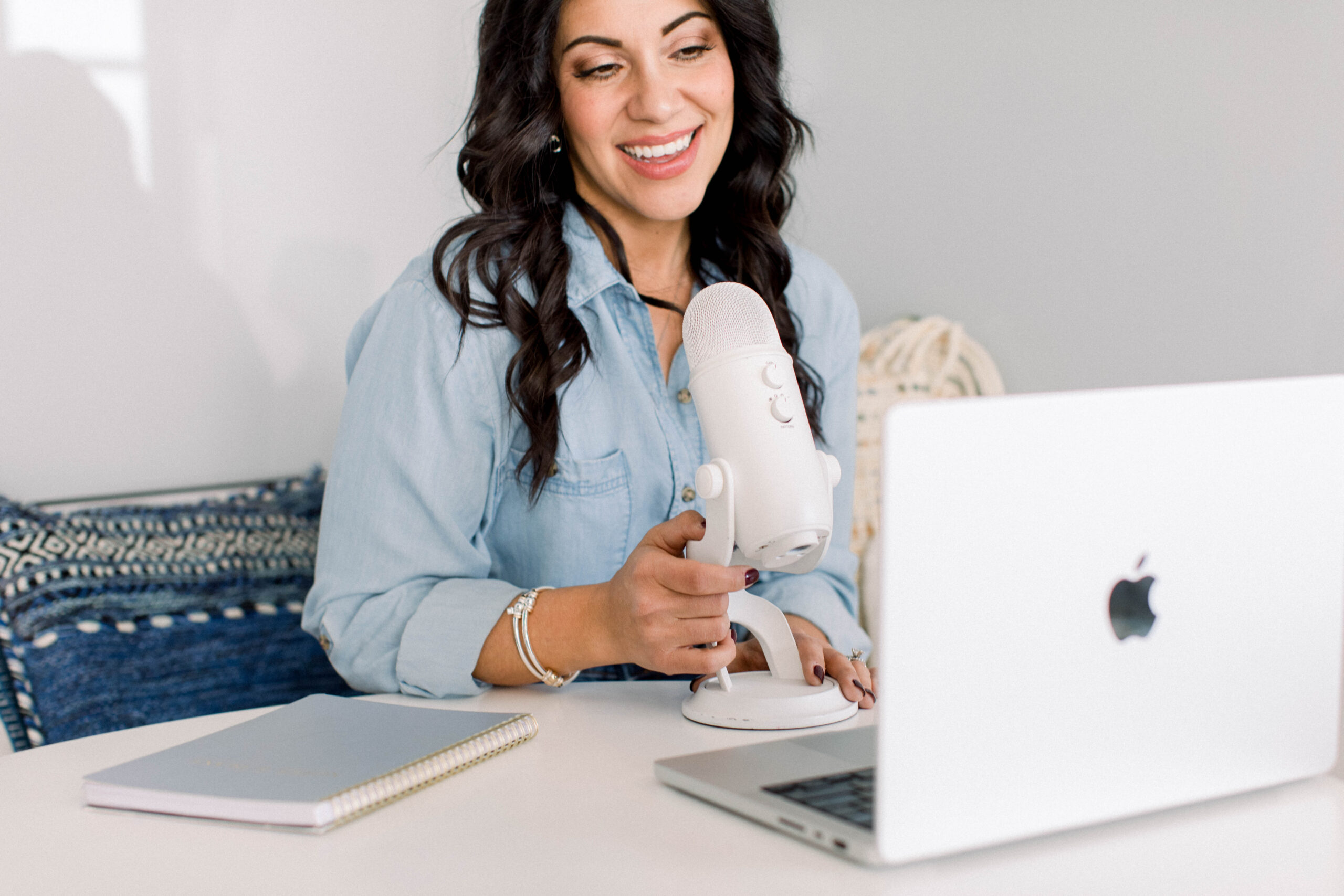

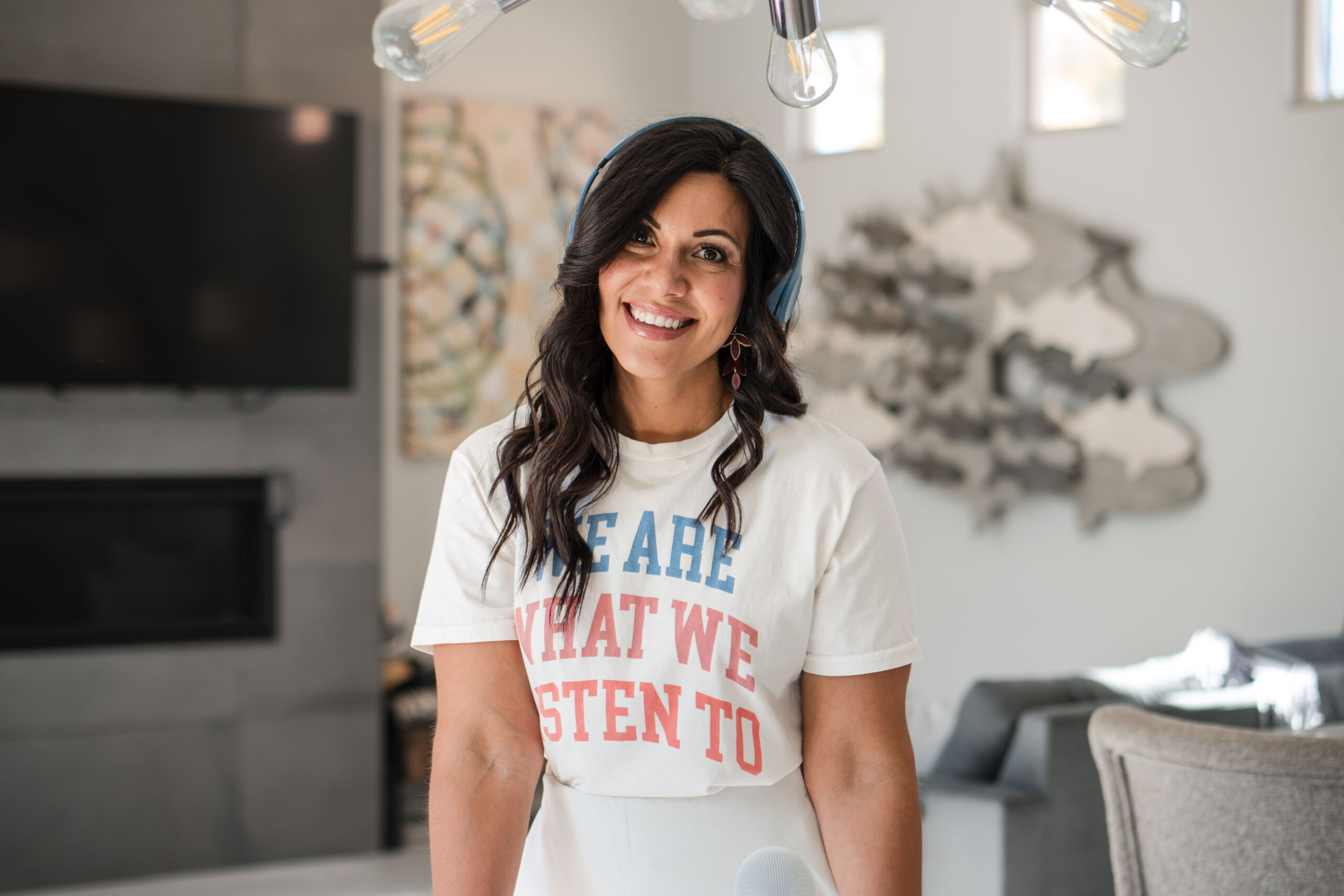

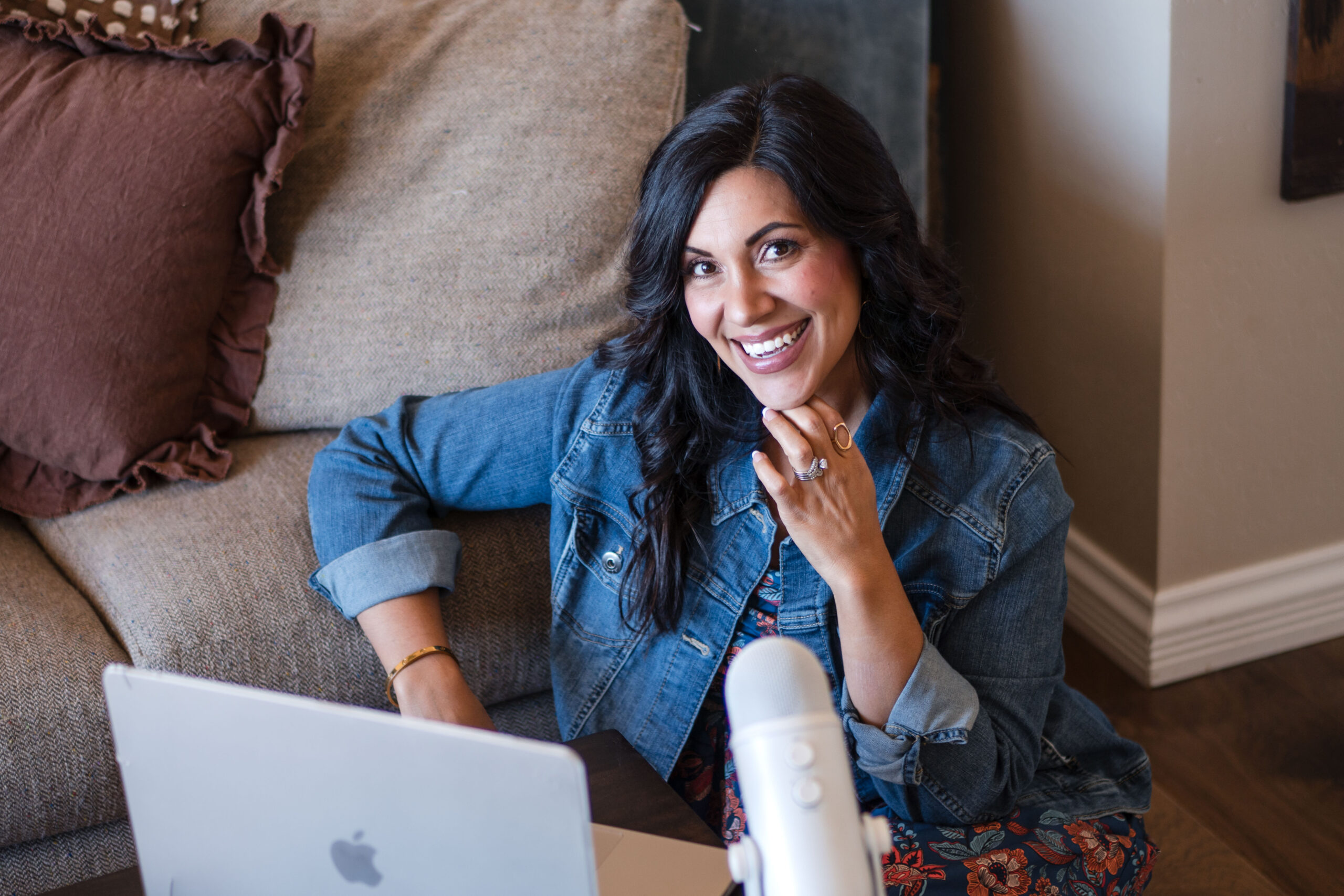
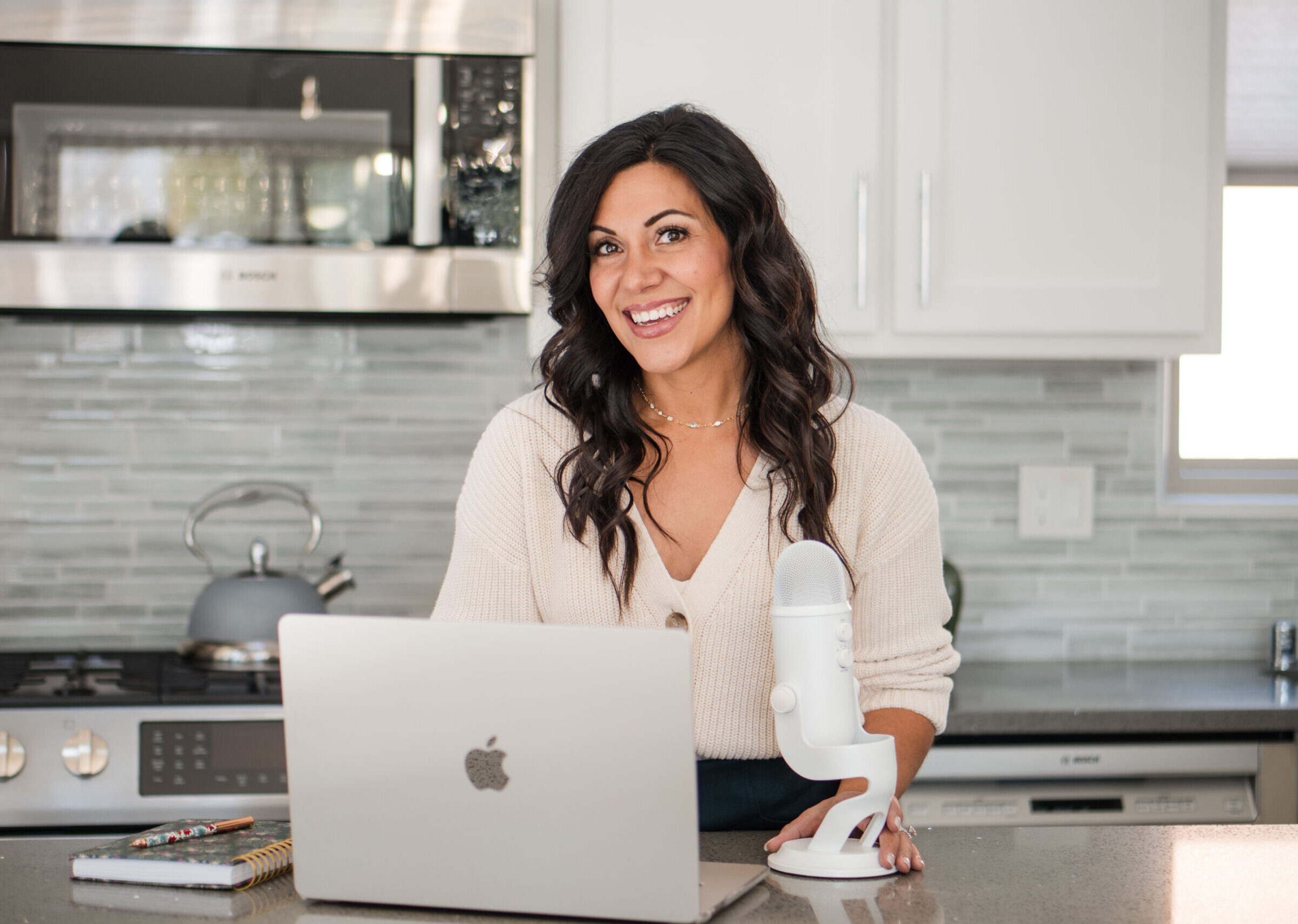
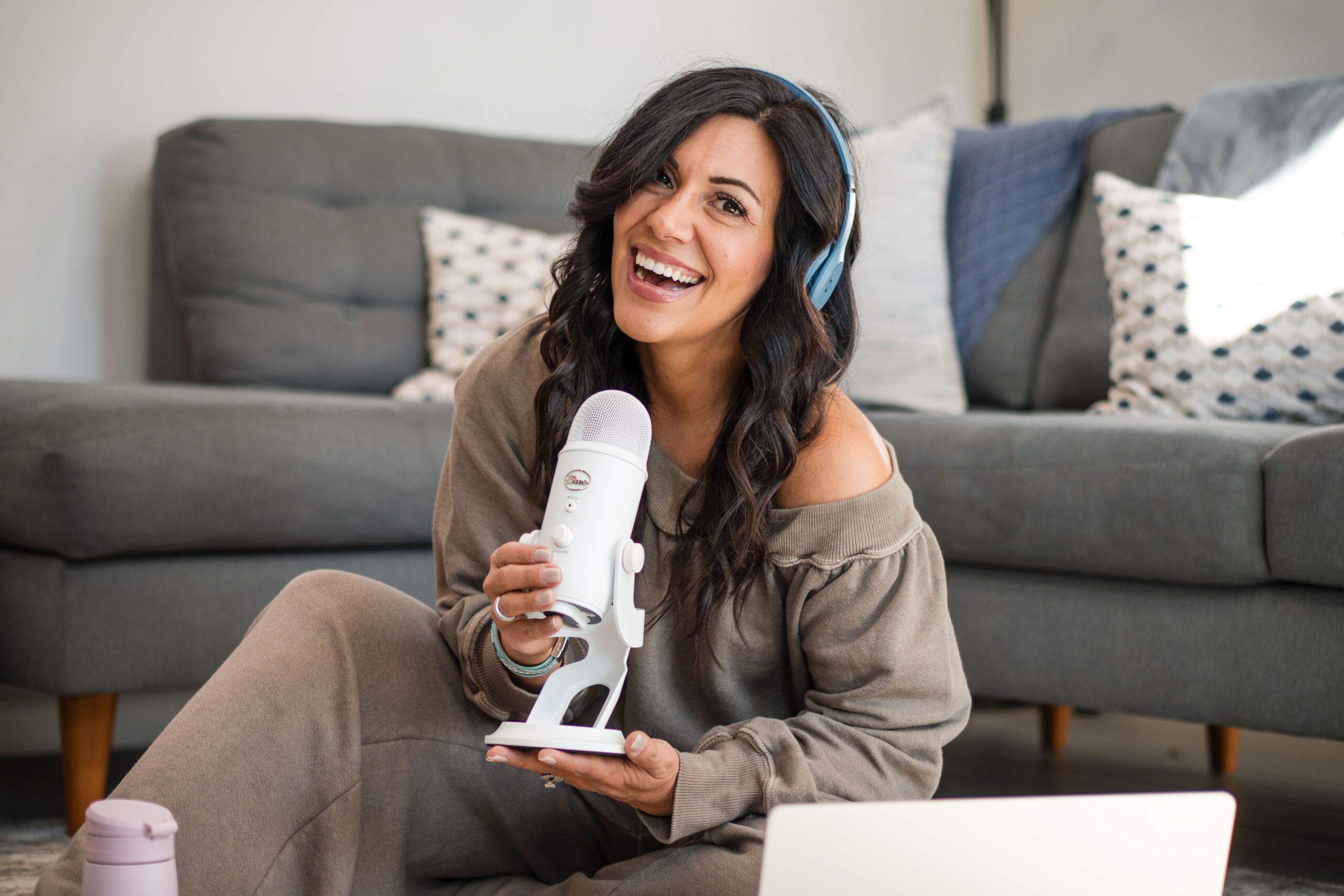





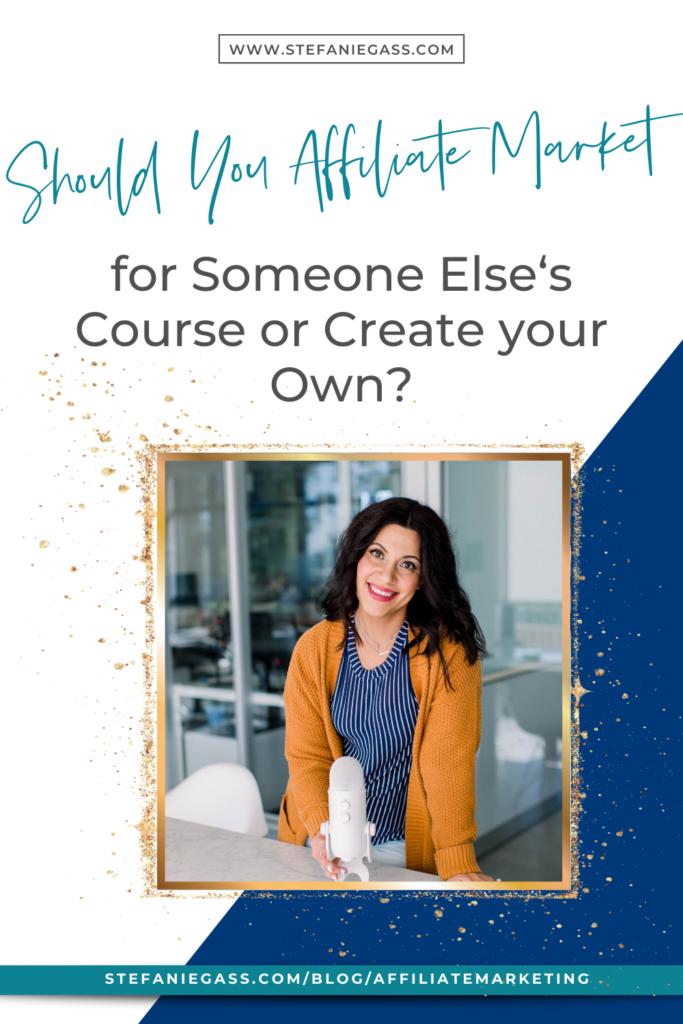

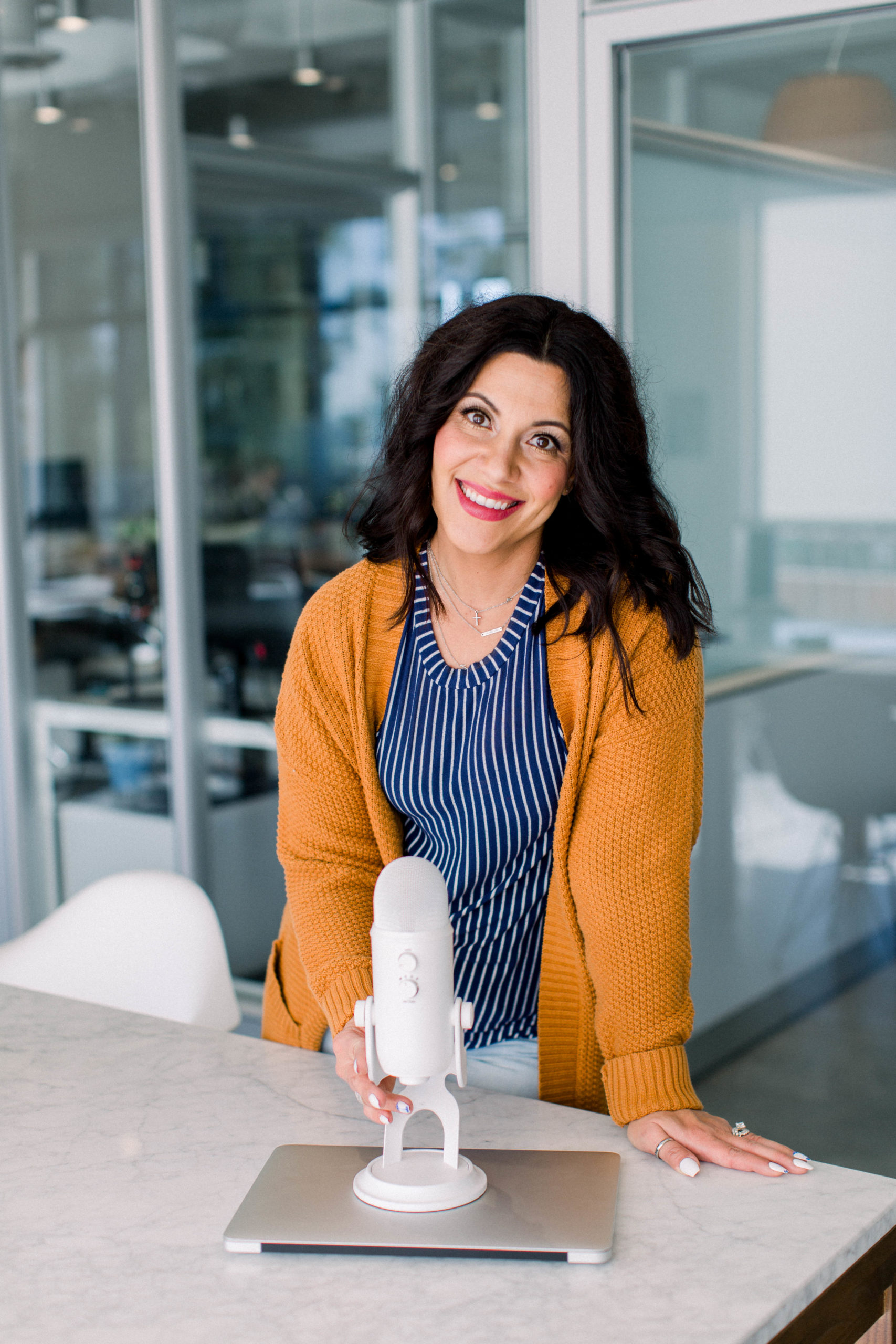
Leave Comment or Question Below